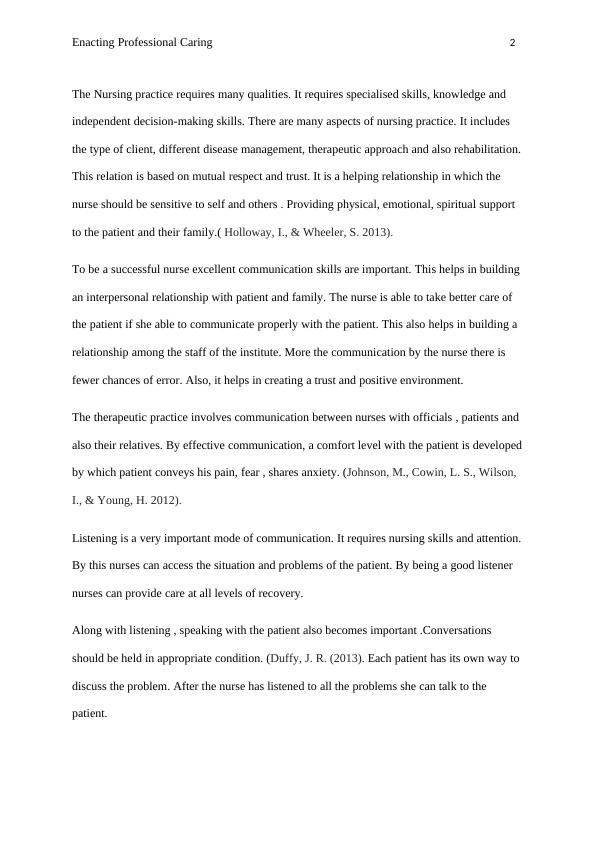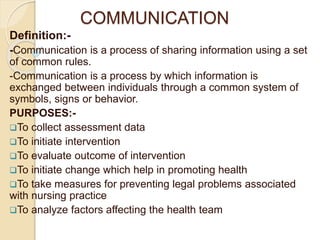Effective communication is a critical aspect of nursing practice. It is essential for building trust and establishing therapeutic relationships with patients, as well as for ensuring that patients receive high-quality care. In this essay, we will explore the importance of communication in nursing practice, the various forms of communication that nurses use, and strategies for improving communication skills.
One of the most important roles of a nurse is to serve as a patient advocate. This involves communicating with patients to understand their needs and concerns, and then working with the healthcare team to address those needs and provide the best possible care. Effective communication is crucial for building trust and rapport with patients, which can help to improve patient outcomes and satisfaction.
There are several forms of communication that nurses use in their practice. Verbal communication is perhaps the most common, and includes face-to-face conversations, phone calls, and electronic communication such as email or text messaging. Nonverbal communication, which includes body language and facial expressions, is also important in nursing practice. Nurses must be able to read and interpret nonverbal cues to understand how patients are feeling and respond appropriately. Written communication, including documentation and patient education materials, is another key aspect of nursing practice.
In addition to communicating with patients, nurses also need to be able to effectively communicate with other members of the healthcare team. This includes doctors, pharmacists, social workers, and other nurses. Collaboration and teamwork are essential for providing high-quality care, and effective communication is crucial for ensuring that all team members are on the same page.
There are several strategies that nurses can use to improve their communication skills. One of the most effective is active listening, which involves fully focusing on the speaker and trying to understand their perspective. Asking open-ended questions and using reflective listening, which involves repeating back what the speaker has said to confirm understanding, can also be helpful. It is also important for nurses to be aware of their own nonverbal communication, as well as the nonverbal cues of others.
In conclusion, communication is a vital aspect of nursing practice. It is essential for building trust and establishing therapeutic relationships with patients, as well as for effectively collaborating with other members of the healthcare team. By improving their communication skills, nurses can provide higher-quality care and improve patient outcomes.








